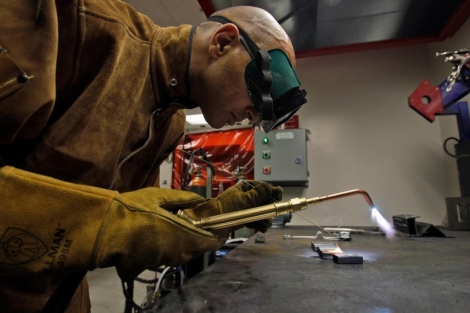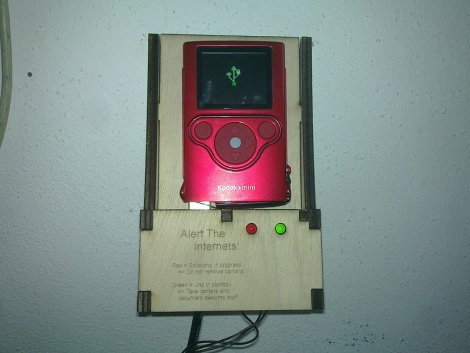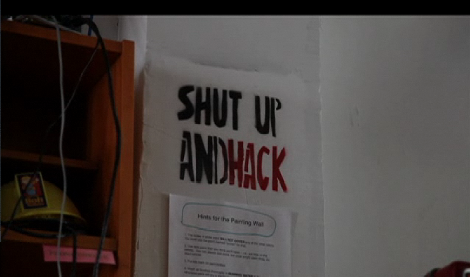We recently had the pleasure of visiting the LVL1 hackerspace in Louisville, Kentucky. Any hackers in the Louisville area who haven’t visited yet are doing themselves a big disservice. The space recently had its one year anniversary in July, but it’s hard to tell. The space features many of the things you’d only expect in older spaces such as a laser cutter (added while we were visiting), CNC machines, extensive electronics workbenches, and even a section for those who are into music. The best part about the LVL1 hackerspace is it’s members. We’ve all heard horror stories of hacker spaces with drama or overly restricting rules, but the people at LVL1 are extremely friendly and willing to help.
The Micro Colonel (president, if you wanna go that route), [Christopher Cprek], gave us a tour of the space and its current projects. One of the most impressive is the White Star Balloon project, which aims to fly a balloon across the Atlantic. There’s also the Louisville Soundbuilders which meet at the space every other Monday at 8pm to make new instruments. Some other projects include a telepresence robot, a pony that breaths fire, and a power wheels race car for the Detroit Makerfaire. There are also things such as the Kentucky Open Source Society (KYOSS) that meets at the space. Even a few sumobots were scattered around. We were fortunate that at the same time we were visiting [Brandon Gunn], who regularly does video tours of the hackerspaces he visits, was there too; watch his video tour of the space after the break.
The space usually has an open to the public meeting every tuesday at 7:00, but be sure to check out their calendar for more. If you’ve never been to a hackerspace before you should definitely make an effort. It’s not the tools that make a space, but the people, and LVL1 delivers.
Continue reading “Hack A Day Visits LVL1 Hackerspace In Louisville”

















